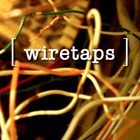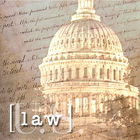
Article I, Section 1, US Constitution: First Amendment to the US Constitution: Fourth Amendment to the US Constitution: Seventh Amendment to the US Constitution:
|
FMR ACTING ATTORNEY GENERAL SAYS BUSH INTERVENED TO HALT MASS RESIGNATIONS OVER NSA PROGRAM JAMES COMEY, FMR DEPUTY TO AG ASHCROFT, TESTIFIED BUSH ACTED TO CONTINUE PROGRAM, PREVENT PROTEST RESIGNATIONS FROM TOP JUSTICE OFFICIALS 17 May 2007 Testifying before the Senate Judiciary Committee, James Comey, former deputy attorney general, who acted as AG during Ashcroft illness in early 2004, said Pres. Bush intervened to halt a raft of resignations in protest over the policy clash. Comey reportedly had to rush to AG Ashcroft's hospital bedside to prevent White House officials from gaining authorization, despite official opposition from Justice Dept. lawyers and then acting AG Comey. Comey testified that in view of an "extensive" study carried out by Justice Dept. lawyers, the NSA warrantless wiretaps were found to be in violation of the law, and he therefore could not sign any re-authorization. He passed this information to Ashcroft, who sided with Comey and Justice officials. The New York Times reports "Mr. Comey said that on the evening of March 10, 2004, Mr. Gonzales and Andrew H. Card Jr., then Mr. Bush’s chief of staff, tried to bypass him by secretly visiting Mr. Ashcroft. Mr. Ashcroft was extremely ill and disoriented, Mr. Comey said, and his wife had forbidden any visitors." In his testimony, Comey describes getting cooperation from FBI director Robert Mueller, who ordered FBI agents securing Ashcroft's hospital room not to remove Comey if White House officials objected to his intervention. The Times also reports: "When the White House officials appeared minutes later, Mr. Gonzales began to explain to Mr. Ashcroft why they were there. Mr. Comey said Mr. Ashcroft rose weakly from his hospital bed, but in strong and unequivocal terms, refused to approve the eavesdropping program." Reportedly angry and frustrated, White House chief of staff Andrew Card called Comey after leaving Ashcroft's bedside and demanded he come to the White House for a meeting. Comey testified his reponse was "After what I just witnessed, I will not meet with you without a witness, and I intend that witness to be the solicitor general of the United States." Upon learning of the strong opposition of Justice officials to extending the wiretap program, Card reportedly worried that mass resignations could follow. Comey testified he had prepared a letter of resignation in protest should the program be continued, and that John Ashcroft requested he not submit the letter until he was well, so he could resign simultaneously. FBI director Mueller was reportedly also planning to resign if the program were continued without fulfilling legal requirements. After a 15 minute private meeting with Pres. Bush the following day, and what he described as a "full exchange" of ideas on the issue, Comey said the president met (as his urging) with FBI director Mueller, who later assured him the president wanted the program to continue with the changes Justice required in order to ensure the legality of the surveillance. In August 2006, the Supreme Court ruled the wiretaps were in fact unconstitutional, and early in 2007, the Justice Dept. ordered the program be submitted to the review of the secret Foreign Intelligence Surveillance Court. This was supposed to be the move that finally brought the program, more than 5 years old, into compliance with federal law. The classified nature of the program makes independent confirmation of that status unavailable, while Congressional inquiries continue to probe for details of the program's ongoing operations. Comey's appearance before the judiciary committee was part of the committee's investigation into current AG Alberto Gonzales' role in the apparently politically motivated firings of at least 8 US attorney's last year. [s]
BACKGROUND: A federal judge in Detroit ruled early yesterday that Pres. Bush's NSA surveillance program, which uses wiretaps implemented with no judicial oversight, is unconstitutional. The ruling strongly enforced the point that there are "no powers not created by the Constitution" rejecting the AG's claim that the Congressional Authorization for the Use of Military Force (in Afghanistan) as a legal platform for sweeping new domestic powers. Judge Anna Diggs Taylor specified that because there are "no powers not created by the Constitution" available to the president, "all 'inherent powers' must derive from that Constitution". This specifically takes issue with the attorney general's much criticized counsel suggesting the president can derive expansive new prosecutorial powers from laws specifically enacting Constitutional processes designed to permit overseas military action. More specifically, the NSA wiretap program —as argued by many legal experts and civil rights organizations, including the ACLU and the other plaintiffs— violates several Constitutional provisions and amendments, regarding the separation of powers, the interpretive role of the Judiciary, the oversight roles of both the Judiciary and the Legislature, and the individual liberties of innocent Americans. [Full Story]
ACLU ACQUIRES GOV'T DOCUMENTS SHOWING SURVEILLANCE OF PEACEFUL, LAW-ABIDING GROUPS New information acquired by the ACLU by way of the Freedom of Information Act, shows the FBI and the Joint Terrorist Task Force have been monitoring, infiltrating and spying on innocent, law-abiding individuals and both non-religious and faith-based activist groups whose activities are entirely peaceful and are protected by the First Amendment to the US Constitution. [Full Story] AT&T SUED FOR VIOLATING LAW IN NSA DOMESTIC SPY PROGRAM AT&T was once the nation's telecommunications monopoly, and abuses there led to the break-up of the Bell monopoly and the regulation of telecoms, with the intent of encouraging competition and achieving the goal of forcing providers to serve the customers first. Now, the Electronic Frontier Foundation has filed a lawsuit alleging that the telecommunications giant has violated federal law by assisting the government in spying on innocent Americans without any court authorization. [Full Story] DATA SHADOWS & IMPROBABLE CONSENT Neither contracts nor "terms and conditions" including indemnities disclaimers, can be classified as legislation. They do not make or construct legal limits by themselves. Obvious as this may seem, it is a necessary introduction to the problem of the trade in personal information and "soft surveillance", whereby one is routinely subjected to interrogation, inspection and even physical search, not for having broken any laws or even aroused any reasonable suspicion, but simply because "that's policy". [Full Story] |
||||||
|
|||||||

